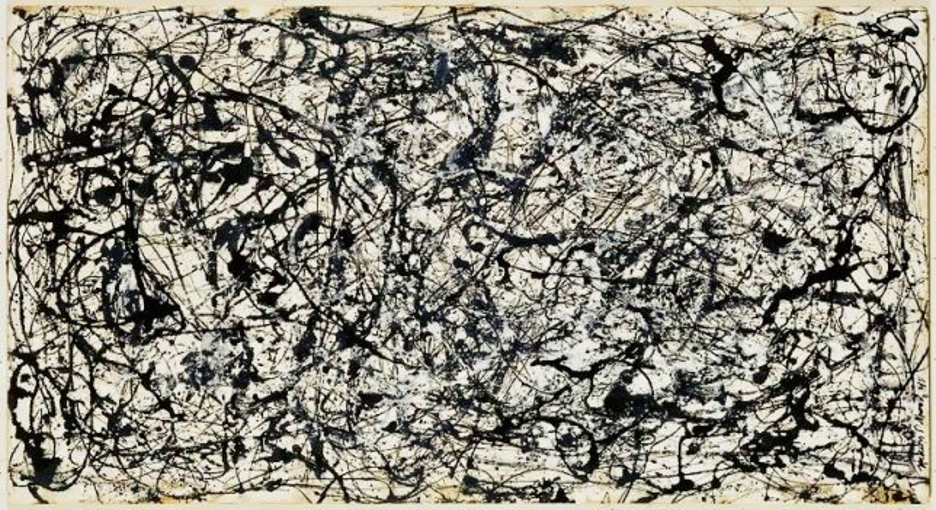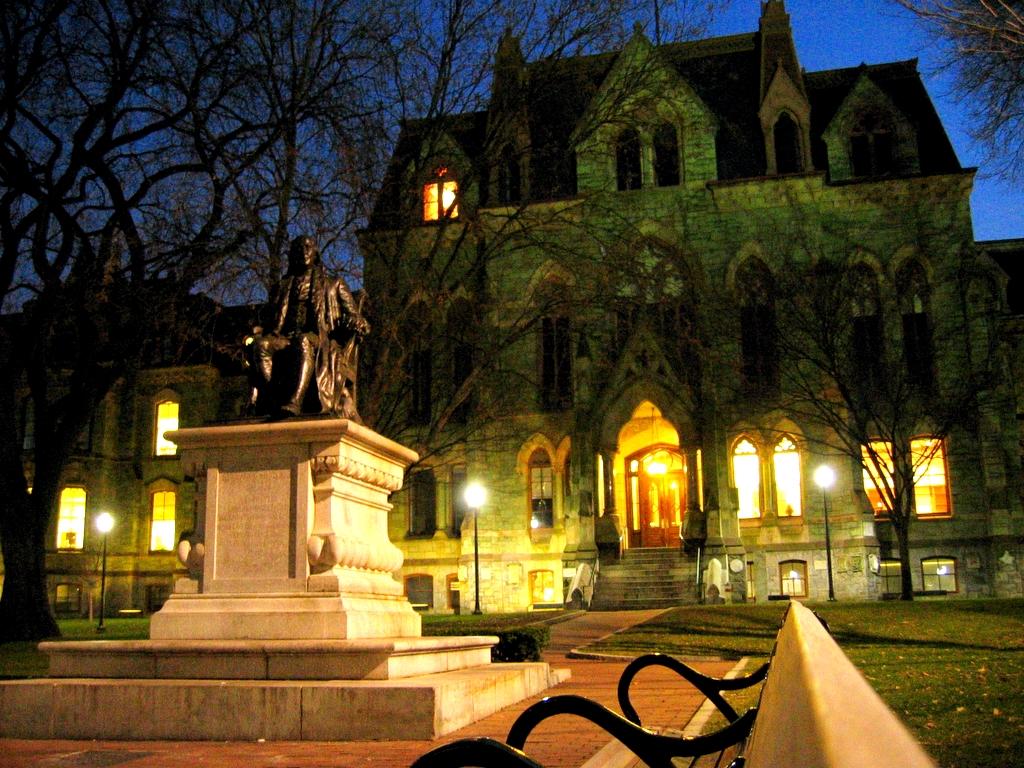October 7 as Turning Point in Jewish History
Marking the anniversary of October 7, 2023, and its aftermath in university and political life, five prominent historians of Judaism reflect on the date as a watershed for American Jewish history

Anselm Kiefer - Salt, Mercury, Sulfur (Salz, Merkur, Sulfur) [2011]
The atrocities that occurred on October 7, 2023, have proven to be part of a much larger chain of traumatic, globe-shaking events that are still unfolding, and it will take years to unpack their significance and consequences. At the same time, the effort to make sense of their impact is already underway. This forum, convened by Rebecca Kobrin, shares preliminary reflections on October 7 as a historical turning point by five Jewish studies scholars:
- Rebecca Kobrin, Columbia University
- Derek Jonathan Penslar, Harvard University
- Susannah Heschel, Dartmouth College
- David Feldman, Birbeck Institute for the Study of Antisemitism
- Arnold M. Eisen, Jewish Theological Seminary of America
October 7, Higher Education, the “War on Campus,” and the “Great Withhold”
Rebecca Kobrin
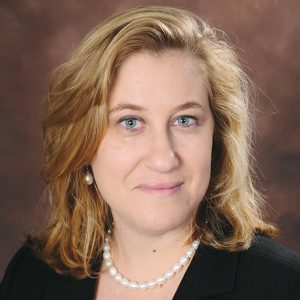 It began with an unfathomable attack on Israelis within Israel’s borders. The attack upended many long-held assumptions about Jewish sovereignty, Jewish security, and how a Jewish state would keep Jews safe. Activism erupted throughout the world—many mourned while some celebrated. Then protests emerged over Israel’s retaliation. From the beginning, specific American college campuses churned with activism. While the media set up an equivalency between “the war in Gaza” and “the war on campus,” we must interrogate whether such a linking by the press captures campus discourse or was a subset of a broader populist antisemitic movement—outside academia and across the world. As protest spread through specific campuses, outraged alumni turned to social media; hostile Republicans in Congress summoned university presidents to testify; female university presidents lost their jobs. Higher education became a political football in a polarized moment in American politics.
It began with an unfathomable attack on Israelis within Israel’s borders. The attack upended many long-held assumptions about Jewish sovereignty, Jewish security, and how a Jewish state would keep Jews safe. Activism erupted throughout the world—many mourned while some celebrated. Then protests emerged over Israel’s retaliation. From the beginning, specific American college campuses churned with activism. While the media set up an equivalency between “the war in Gaza” and “the war on campus,” we must interrogate whether such a linking by the press captures campus discourse or was a subset of a broader populist antisemitic movement—outside academia and across the world. As protest spread through specific campuses, outraged alumni turned to social media; hostile Republicans in Congress summoned university presidents to testify; female university presidents lost their jobs. Higher education became a political football in a polarized moment in American politics.
My institutional home, Columbia University, was described by the press as the epicenter. Both students and faculty saw themselves enmeshed in an unprecedented battle with the administration about its practices regarding free speech. Protests led to teach-ins, then encampments, then arrests, and finally a building occupation and more arrests. During two days in April, I watched with amazement as congressional leaders, white supremacist Proud Boys, members of Neturei Karta (an ultra-Orthodox Jewish group openly opposed to Zionism), and a host of Muslim groups praying for peace in Gaza, all visited and created chaos around the gates of my campus to protest what was taking place at Columbia and in the Middle East.
What actually took place inside the campus demands more assessment. I write because if I do not, these events will become distorted. I have been struck by the lack of analysis or even mention of the role gender has played in the protests and the fallout. First, the encampment at Columbia was overwhelmingly female. While the composition of the encampment changed from day to night, the evidence from the arrested students of Columbia’s first encampment bears out a huge gender imbalance of the movement’s most committed members. Over two-thirds of those officially arrested were female students. While we have heard much about several outspoken male leaders, whose violent rhetoric toward “Zionists” crossed many lines, we do not know what most of the women in the encampment thought of these male activists or their views. Moreover, despite activism on college campuses led by both men and women college presidents, only female presidents found themselves summoned to testify, grilled by Congress, and later forced to resign.
After the protests erupted, alumni responded with “the great withhold”—Jewish donors and alumni refusing to offer financial support to the universities that had educated them. Jewish scions of business serving as university trustees made clear they would not support their formerly-beloved institutions until the universities clamped down on the protests sweeping the nation (even the world).
The role played by alumni and donors who see themselves as stakeholders in what was taking place on campus is critical. Jewish alumni used social media, Congress, and the legal system to unleash an attack not only on Columbia but also on other elite institutions of higher education. Deploying methods prevalent in their business endeavors, specific alumni created a social media frenzy, as they turned their ire on university administration and even onto those in the field of Israel studies for their critical scholarship on the contemporary State of Israel.
The corporatization that allows alumni to see themselves as shareholders and their gifted funds as investments maintaining their chosen universities’ branding fueled “the great withhold.” In the months following October 7, many of the most generous Jewish donors publicly proclaimed on social media and in the press that they could no longer support the schools that had helped launch their careers. Some American Jews began to question the faith Jews had placed in American higher education altogether. During the late nineteenth and early twentieth century, America’s Jews not only sought admittance to American higher education, but wealthier Jews believed that American universities—particularly those in the Ivy League—could uniquely promote Jewish integration and acceptance. Members of such illustrious congregations as New York City’s Temple Emanuel invested in the creation of chairs in Jewish philosophy and Jewish history at universities like Harvard (1925) and Columbia (1929) out of the belief that if Jews and Judaism were studied like other groups, Jews would become more respected and more accepted in American society.
For some, the larger social compact between Jews and American higher education was deeply shaken after October 7. To be sure, in the postwar era, American higher education did help Jews achieve economic mobility, but by the twenty-first century, Jewish alumni had reason to expect that Jews should be protected like any other minority group on campus. They expected that universities would make stronger statements when Jews were attacked in the world and handle the complaints of Jews on campus with bolder responses. However, withholding funds from Jewish studies is not the answer—particularly at this moment. We need more experts on Israel and the Middle East on campus to add nuance and complexity to the discussion that protesters cast in Manichean binaries.
What will be the long-lasting impact of these events—the protests, “the great withhold,” the Congressional investigations, the lawsuits—on the relationship of Jews to elite higher education in the United States? It may be too soon to tell, but in the last nine months, across the country, universities have responded by creating new antisemitism taskforces and centers. Professors in Jewish and Israel studies departments have been placed in an unprecedented position: either their expertise is ignored or they are tasked with jobs they were not trained to do. As structures of the university are brought into question, Jews and American higher education are entering new terrain. Parsing this new terrain is part of the larger project to which scholars must turn their attention in the aftermath of October 7, as the Jewish community rethinks its assumptions about Israel, antisemitism, and this moment in the longer arc of Jewish history.
Jews, the University, and the Discourse of Betrayal
Derek Jonathan Penslar
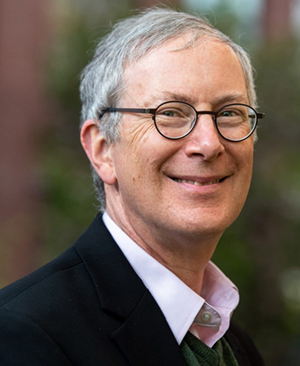 In April of this year, the Anti-Defamation League issued what it called a “Campus Antisemitism Report Card.” The ADL issued grades to more than eighty American colleges, assessing how well they had combatted antisemitism on campus and protected Jewish students. The ADL is a tough grader: only two colleges got an “A,” eighteen got a “B,” thirty-two got a “C,” and thirty-three (including Harvard, Yale, Princeton, Columbia, and Stanford) got a “D” or “F.”
In April of this year, the Anti-Defamation League issued what it called a “Campus Antisemitism Report Card.” The ADL issued grades to more than eighty American colleges, assessing how well they had combatted antisemitism on campus and protected Jewish students. The ADL is a tough grader: only two colleges got an “A,” eighteen got a “B,” thirty-two got a “C,” and thirty-three (including Harvard, Yale, Princeton, Columbia, and Stanford) got a “D” or “F.”
Critics dismissed the report card as a scare tactic and publicity stunt. But there was much more to it than that. A report card is an assessment of performance and a tutelary recommendation for improvement. Its issuer is authorized to offer such an assessment and does so in the belief that it will be taken seriously by its recipient. Since its foundation in 1913, the ADL has been known as a defense organization, that is, one that defends Jews against antisemitism. But for the ADL and Jewish organizations like it, defense entails an active offense: calling out malefactors and making public judgments and recommendations. They do so with the confidence that they have an audience—in government, the court system, and public opinion.
American Jews are living with an unspoken contradiction. On the one hand, they are feeling more vulnerable than at any time since the Second World War. They have been doubly traumatized—by the Hamas-led massacre of over 1200 Israelis in October of last year and, since then, by ubiquitous pro-Palestinian demonstrations and a spike in antisemitic incidents, some of them violent. Colleges, especially elite ones with a leftist tilt, have been a source of particular concern to Jewish students, parents, and alumni who feel that pro-Palestinian students and faculty have free rein to shut down other points of view, disrupt campus life, and shame or shun Jewish students who refuse to disavow Israel. Jews are feeling fearful, angry, and betrayed.
On the other hand, the sense of betrayal assumes that Jews have been fully engaged and on equal terms within American society. The public protests coming from Jewish organizations assume that people will listen. The emotional state and rhetoric of American Jews today testify not only to the weakness of the Jews’ position in American society, but also to its strength and, more broadly, to the current moment as a continuation of long-held expectations by diaspora Jews of the societies in which they live.
Before the nineteenth century, Jews responded to antisemitism through passive acceptance or quiet intercession. This approach began to change as Jews underwent emancipation, economic mobility, and increased social integration with Christians. From the mid-1800s onward, Jewish leaders publicly protested the persecution of Jews throughout the world. The growth of antisemitism in Europe and the United States in the later 1800s led to the establishment of organizations devoted to fighting Jew-hatred in the court of public opinion and in the courts themselves. The underlying assumption behind this activity was that Jews were fully accepted within the body politic. Because Jews were equal in every way to Christians, they did not need to plead for favors but instead depicted antisemitism as a violation of the modern liberal state’s fundamental principles.
American Jews have felt at home in the United States precisely because they considered themselves to be model citizens of the Republic. In this view, antisemitism is not only dangerous, it is also un-American. An underlying optimism about life in America has caused American Zionism to reject varieties of Zionism that have no faith in gentile society. American Jews’ ongoing, implicit trust in their country and its hallmark institutions, such as Ivy League universities, accounts for their bitter reaction to events on American campuses and throughout the country since October 7.
Betrayal is a rupture of a relationship of trust. Zionists worldwide felt betrayed by Britain when, after committing itself in the Balfour Declaration and League of Nations Mandate to foster a Jewish national home in Palestine, it walked back its promises from the late 1920s through the late 1930s. During the 1970s, when the international community became harshly critical of Israel, American Jews accused the United Nations, which had sanctioned the creation of a Jewish state in 1947 and welcomed it into its midst two years later, of cold-hearted betrayal.
Since October 7, the sense of betrayal has been most apparent among the progressive Jewish Left. Some Jewish progressives who criticized Israel but maintained an attachment to it were horrified by their non-Jewish peers’ justification and even celebration of the Hamas massacre. Among mainstream American Jews the feeling of betrayal is less explicit, but it is implicit in the anger they express toward the colleges that they attended in years past.
In the 1960s, elite colleges overcame their antisemitic heritage and welcomed Jews, who comprised a substantial minority of student bodies. This golden era lasted until the 2010s, when, due to changing demographics and approaches to addressing racial inequity in admissions, the position of Jews in universities began to weaken. Over this same period, concepts of intersectional ties between the plight of the Palestinians and that of racialized minorities in America gained currency among faculty and students. October 7 and the ensuing Gaza War vastly accelerated these ongoing processes. Jews who attended Ivy League schools decades ago accuse the schools of having taken wrong turns and betraying the values that had made their college experience so positive, meaningful, and memorable.
Ironically, the discourse of betrayal is a testimony to American Jewry’s ongoing strength. Jewish groups lodging lawsuits, lobbying Congress and the White House, and issuing public statements about antisemitism do so because they assume that their voice will be heard. They maintain the longstanding credo that Jews are fully integrated into American society and that the values that they cherish are aligned with the vast bulk of the American people.
The Dartmouth Exception
Susannah Heschel
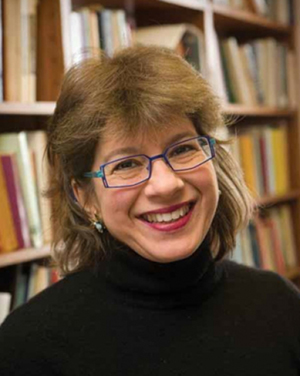 October 7, 2023, will be remembered as a catastrophe in Jewish history, and a major turning point in Jewish politics. The Zionist promise that a Jewish state would protect Jews was shattered; the murder, torture, rape, and kidnapping that took place in Israel on that day demonstrated that violence remains a reservoir of possibility waiting to be activated against Israelis and Jews more broadly.
October 7, 2023, will be remembered as a catastrophe in Jewish history, and a major turning point in Jewish politics. The Zionist promise that a Jewish state would protect Jews was shattered; the murder, torture, rape, and kidnapping that took place in Israel on that day demonstrated that violence remains a reservoir of possibility waiting to be activated against Israelis and Jews more broadly.
The response at American universities was immediate. Rather than express sorrow over the horrors, some faculty and students rejoiced. One tenured professor at an Ivy League university declared on October 8 that he felt “exhilarated” by the attacks. To be indifferent to the slaughter of 1200 people might be concerning; to rejoice in that slaughter expresses a sadistic pleasure. A colleague attending an academic conference that weekend told me the news was received with celebration in some quarters. An atmosphere of triumph on behalf of Palestinians began to spread among some faculty colleagues and students, and memes of hang gliders began circulating, as if Hamas were a force of liberation and slaughter an appropriate form of resistance.
The conviction that America was the great exception to antisemitism has ended; the feeling that we as scholars and students in Jewish studies are an integral part of the academic community is over; boycott of Israeli researchers is unofficially launched; and many of us in the field feel isolated and abandoned. Yet at Dartmouth College, where I chair the Jewish Studies Program, the atmosphere was different. My colleagues in Middle Eastern Studies joined me in holding two faculty forums open to the community that first week. Hundreds of students and faculty attended, with 1600 joining on the livestream, as three of my colleagues and I spoke about our reactions and answered their questions. We created an atmosphere of calm, and we modeled for the Dartmouth community how to address each other as faculty who may not agree on political issues but nonetheless listen carefully to each other and address each other with respect. We emphasized at the forums that discussions at academic institutions are conducted in a dignified manner. We listened to each other as we would want to be heard.
Our small faculty group took a four-day retreat to plan a year of speakers and offer additional courses on the conflict. We arranged to bring dialogue partners to speak about their peace-making efforts, and our programs have focused on the future: how to end the constant warring and bring peace. As one of my colleagues told a student, we are not here to litigate the past, but to learn how to create a better future.
For years we have fostered a close working relationship between Jewish studies and Middle Eastern studies. Over the years, we have cosponsored lectures, workshops, and conferences. We cross-list many of our courses, and students majoring in one program modify their studies with courses in the other. Our courses on the Middle East are cotaught whenever possible, not to present conflicting viewpoints but to model for students how academic collaboration can take place. Our courses attract a range of students: conservative, liberal, Jewish, Muslim, Christian, Israeli, Palestinian. We form a community in the classroom, and our students come to know each other and care about one another. After October 7, they were all in shock—and even those whose views were in opposition took time to care for each other and offer emotional support. Having a Palestinian student sit across the table from an Orthodox Jewish student and engage in dialogue: that is the goal.
Not all faculty in our two programs participate, but we have built a community around the consensus that collaboration will enhance our teaching and our scholarship. Our students respond to our model, and our administration has been wonderfully supportive of our work.
We have been called the “Dartmouth exception.” We have kept the peace on campus, apart from a May 1 demonstration whose student leaders, we noticed, had never attended our programs. We are certainly not opposed to demonstrations; it is a right of all American citizens to express their views. We accept that not all faculty stand with us; we have opponents on the far Left and far Right, and some colleagues who view their classes as opportunities for political agitation. We do insist that faculty should be available to all students, regardless of religious or political leanings, and for that reason we do not advertise our political views. I explain to my students that I have friends and relatives at both ends of the political spectrum, and I respect their views; I want my students to feel that they can talk to me about their views without being criticized by me.
In a class I coteach with my colleague who chairs Middle Eastern Studies, “Arabs, Jews and Constructions of Modernity,” we compare the enthusiastic responses of Arabs and Jews to the promise of the Enlightenment, its universalism, rationalism, and liberalism. We see their similarities: Bustrus al-Bustani, father of the nahda, and Yehuda Leib Gordon, poet of the Haskalah, used similar language to encourage an “awakening” of Arabs and Jews to Europe’s intellectual promise. Arabs and Jews flocked to European universities, but also criticized Europeans’ philological errors in Hebrew and Arabic. Gradually, both Arabs and Jews recognized that the universalism promised by the Enlightenment did not include them. Our students discover that Arabs as well as Jews were horrified by the antisemitism of the Dreyfus Affair, which repudiated Enlightenment principles. Jews turned to Zionism, Arabs to overthrowing colonialism. While our seminar ends with the 1920s, students come away recognizing that the conflict today was not inevitable, that the dawn of modernity began not with Arab-Jewish conflict but with shared struggles.
Jews and the Left
David Feldman
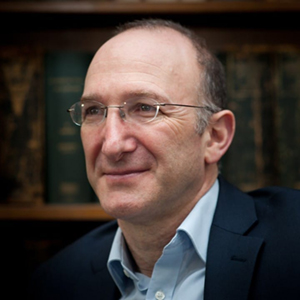 Was October 7, 2023, a defining moment in the Jewish diaspora? To the extent that diaspora Jews feel an attachment to Israel, this idea is easy to comprehend. But not infrequently, we are told that October 7 and its aftermath have been momentous in other ways. The relationship between Jews and the Left has been central to these discussions.
Was October 7, 2023, a defining moment in the Jewish diaspora? To the extent that diaspora Jews feel an attachment to Israel, this idea is easy to comprehend. But not infrequently, we are told that October 7 and its aftermath have been momentous in other ways. The relationship between Jews and the Left has been central to these discussions.
Critics highlight cases in which figures and organisations on the Left have failed to condemn the massacre of civilians, the sexual violence, and the hostage-taking on October 7. They hold the Left in part responsible for the global spike in recorded antisemitic incidents as well as for abandoning Jews in the face of this surge of racism. They point to demonstrations in support of Palestinians that included a leavening of support for the Hamas attack; they draw attention to the predicament of Jewish students who have been subject to verbal abuse, harassment, and physical violence.
The Left is many things. There is the Left that criticizes Israel and the occupation and denounces its cataclysmic war on Gaza on the basis of international law. And then there is the Left that believes might is right, so long as it is exercised by the oppressed. The notion that Jews and the Left are locked in antagonism sets aside the fact that Jews, too, are part of the Left. One element in any assessment of the last year must take account of the growth and rising confidence of a self-consciously Jewish Left in the United States and Great Britain.
Across nuances and divisions on the Left, there is a rising tide of opinion that Zionism was a colonial settler project from the beginning and that today Israel is an apartheid state. Crucially, this conception of Zionism and Israel predates October 7, 2023. The last year has not been a watershed in relations between Jews and the Left. It has reflected an acceleration of trends and an amplification of voices that has sounded loudly since the beginning of this century.
At the United Nations World Conference against Racism and its NGO forum held at Durban in 2001, two contentious questions grabbed attention: the continuing conflict between Israel and the Palestinians, and the demand from African states for apologies and reparations for slavery and colonialism. The two issues were connected. The demand for apology and reparations dealt with the historical formation of colonialism and racism. Support at Durban for Palestinians turned on characterizing Israel as an egregious case of colonialism and racism in the present.
A great deal that is familiar today was expressed at the Durban conference. The final declaration named Palestinians as victims of racism and racial discrimination. The NGO declaration and plan of action went further and referred to Israel as a perpetrator of war crimes, ethnic cleansing, and apartheid. Jewish delegates at the NGO forum reported that condemnation of Zionism was accompanied by a mix of aggression, harassment, and Jew-hatred. The meetings marked a rupture between the politics of anti-racism and the politics of anti-antisemitism.
Events over the next two decades reinforced the conception of Israel articulated at Durban—three operations in Gaza between 2008 and 2014, expanding settlements and brutality in the West Bank, the 2018 Nationality Law, and the demise of the peace process and the two-state solution—all confirmed the validity of the Durban paradigm to the growing Palestine solidarity movement. Inevitably, the idea has grown that it is not the occupation but Israel itself that is the problem. Some on the Left not only adopt this analysis but also use it to advocate for a future between the Jordan River and Mediterranean Sea without the state of Israel.
The characterization of Israel as a racist and settler colonial state misses a great deal that is historically significant (for starters: antisemitic discrimination and violence in Europe in the nineteenth and early twentieth centuries, the Holocaust, the legacy within Zionism of European ethnonationalism, Israel’s own struggle against the British, and the influx of migrants and refugees from Arab lands) but neither is it mistaken. It is a crooked path that leads from the Balfour Declaration to the foundation of the state of Israel. Nevertheless, the partnership between Zionism and British imperialism proved decisive. The history of racism and domination, privilege and expropriation, within Israel’s recognized borders as well as beyond, has been plain to anyone who cared to look. Two years after Durban, the Or Commission, established by Ehud Barak, reported dryly that generations of Israeli governments had been neglectful and discriminatory in their treatment of Israel’s “Arab minority.” In 1949 just 13 percent of the land in Israel was in Jewish hands; by 1966 the figure was 93 percent.
The last year has revealed the strengths and weaknesses of the Durban paradigm. Critique of Israel can lend support to a Manichean view of life and politics between the river and the sea, and it can legitimize indifference to atrocities committed against Jews in Israel and to antisemitism elsewhere. These flaws fuel the direst fear of many Jewish people—that it is Jewish lives, not the Jewish state, that is the real target of the Left. At the same time, although the Durban paradigm presents us with an image of Israel and of Zionism that dispenses with light and shade, it is irrefutable that domination, discrimination, and expropriation have shaped the history of Israel. When critics of the Left point to the shortcomings of some who promote this image, they offer a response but not an answer. They acknowledge neither the damage done nor the task of repair; the dimensions of both have expanded since October 7.
The Two Worlds of Judaism
Arnold M. Eisen
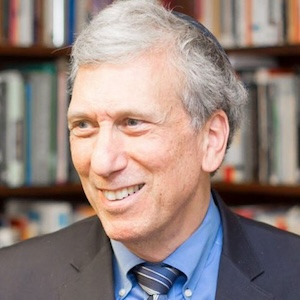 I will reflect for the next few moments about how Jews and Judaism in North America have changed, likely will change, and in my view should change, as a result of the events of the past year. I will approach these questions through three conceptual frameworks that have long shaped my scholarship and my personal commitments. American Jewish history has clearly been shaken by October 7 and its aftermath. But with war still raging and the future direction of both Israel and America very much up in the air, any predictions must be tentative. Mine will largely take the form of hope or even faith.
I will reflect for the next few moments about how Jews and Judaism in North America have changed, likely will change, and in my view should change, as a result of the events of the past year. I will approach these questions through three conceptual frameworks that have long shaped my scholarship and my personal commitments. American Jewish history has clearly been shaken by October 7 and its aftermath. But with war still raging and the future direction of both Israel and America very much up in the air, any predictions must be tentative. Mine will largely take the form of hope or even faith.
I begin with the framework for understanding modern Jewish thought provided by Eliezer Schweid. Jewish thinkers since Spinoza have faced two primary challenges, identified presciently in the title of the Tractatus. One was political: where could Jews stand in the emerging world order, in societies and states no longer dominated by Christianity or Islam? The other was theological: what sorts of Judaism could Jews develop that would be suitable to those political realities?
Only two viable answers had thus far emerged to the political question in Schweid’s view, both accompanied by immense risks. The first is Emancipation: minority status in a Western diaspora democracy, with Jewish survival and thriving secured by law and broad social acceptance. (America today is of course the most successful example of this model.) The other option is Zionism: a state in the Land of Israel, secured by force of arms and alliances with greater powers. Emancipation has offered unprecedented possibilities for individual and communal achievement but has the built-in disadvantages of assimilation and antisemitism. Zionism offers the advantages that come with state power and a majority culture, but it cannot deliver on its promise of “secure refuge” for Jews so long as Palestinians and Arab or Muslim neighbors do not accept Israel’s existence. Jewish achievement in both Israel and America has in some ways been spectacular over the past 75 years, but many Jews in both places with good reason had a sense, ever before October 7, that their well-being was precarious.
Not surprisingly, the divide between “the two worlds of Judaism” analyzed by Liebman and Cohen in 1990, has grown over time as the two Jewries developed in very different directions. One hesitates to generalize about either, given the diversity of their populations, but it seems fair to say that most non-Orthodox American Jews have embraced Jewish practices and ideals that are personalist, universalist, and focused on ethics or social justice, while most Israeli Jews, Orthodox or not, know a Judaism that is collectivist, particularist, and focused on shared history, the latest chapter of which they, and not we, are writing. Already in 1990, the AJC sponsored a consultation on the growing divide between young American Jews and Israel. The American Jewish Yearbook of 1998 featured a piece by me that argued that Israel was with few exceptions a peripheral concern to most American Jews and their philanthropy as well as to leading Jewish novelists and religious thinkers of all streams. Asked how strongly attached they were to the state, about 30 percent of Jews in America have consistently answered “not at all” in recent decades and only a similar percentage answered “very attached.” As of the 2013 Pew Report, the majority of American Jews had still not visited Israel. Few have much knowledge of Israel’s history, culture, sociology, or politics (or of Jewish history and tradition); only a small minority have learned Hebrew. Large numbers of non-Orthodox Jews have long felt demeaned by Israel’s official rabbinate and put off by its right-wing governments. The oft-heard claim that Israel has become “the religion of American Jews,” needs to be qualified.
I would say instead that the “civil religion” of American Jews in recent decades has been ‘am Yisrael ḥai—declaration that since October 7 has often been made by Israeli Jews as well. “The Jewish people lives”—and must live. Israel, to American Jews, is far more a deeply-felt myth than a known reality. The history of the state that matters is the larger-than-life story of a people reborn after the Holocaust. Israel means life fighting death. Every popular image or account of the state gives expression to that myth, whether the rescue of DP’s on a boat called Exodus, or the battles of a relative few against far more numerous enemy armies, or making the deserts bloom, or being an international leader in high tech, R&D and IPO’s. And, as Franklin Foer and others have rightly pointed out, the myth of Israel was for many years conjoined in this country to an equally mythic story of America, a “bastion of freedom,” “the first new nation,” where Jews and other formerly persecuted religious and ethnic minorities could find a home. Both myths have a measure of truth, of course, and both have been punctured or “broken” over the course of the past half century, but neither had lost its power. Indeed, both perhaps mean more than ever, as the two Jewries deal with extremely polarized domestic politics and the looming effects of global warming, AI, genome editing, a worldwide refugee crisis, and more.
Will the “two worlds of Judaism” draw closer together as a result of October 7? No American Jew with eyes open can doubt any longer that the “covenant of fate” embraces them, whether they like it or not, and whatever their religious or political convictions. What Israel does on the world stage will have consequences for Jews here. It is harder than ever to untangle the strands of causation and influence that connect anti-Zionism to antisemitism. Both impact all Jews everywhere, and I for one have come to believe that some of the fierce anti-Israel sentiment on campus stems from resentment of American Jews rather than the reverse. Large numbers of Jews in this country who, like me, have long supported the creation of a Palestinian state, understand that Hamas wants to kill Jews, Israeli or not, and would happily kill them. For a great many American Jews, as for me, Zionism is not a political opinion, like support for Ukraine in its war against Russia, but a love for Israel, a passion, a mitzvah, a relationship to friends, family and a project, without which I would not be the person I am.
That love is the product of a meeting between me at a formative period of my life and Israel at a formative moment of its life—before settlements, before Bibi and Ben Gvir, with Oslo and Camp David in the headlines rather than death and destruction in Gaza and now Lebanon—so I am not surprised that many younger American Jews do not share it. If more Jews lean into the definition of Judaism as personal, universal, and ethical, disaffection from and disinterest in the state will grow apace and even antisemitism may not reverse the trend.
Schweid’s framework directs American Jewish attention to what we build here rather than to what happens over there. The Jews most troubled by antisemitism may be those with the least knowledge of Jewish history and tradition. Data gathered since October 7 show that American Jews do feel vulnerable to the huge rise in antisemitism in in this country, and have responded in the months following the Hamas attack with increased attendance at Jewish venues, on and off campus. Whether these trends continue of course depends on whether the level of antisemitism goes down after the war and after the American election—but it also depends on whether Jews in large numbers turn back to Jewish traditions and Jewish communities for meaning and solace as they confront the multiple global crises that I fear will soon overtake all of us.
The Zionist claim that Israel offers Jews everywhere a “secure refuge” from both antisemitism and assimilation has without doubt been undermined by the events of last fall. Ironically, though, the faith that the Jewish people will live, and the determination to ensure its survival, may have been strengthened. It is clear that some of Israel’s enemies have both theological and political motivation to attack world Jewry’s national home; American Jews for their part have been forced to confront the fact that their religious affiliation carries political consequences. Rabbi Elliot Cosgrove observes with painful honesty in his just-published meditation on American Jewry post-October 7 that “we could make the case that blurring the line between criticism of Israel and criticism of Jews is fair game,” given that “my Jewish identity and my Zionism are inseparable.” All the more reason for both Jewries to dig in and fight back when ‘am Yisrael hai is at stake.
I myself am impatient with those who counsel Jews to give up on the Zionist project, or conclude that faith in Israel’s success and virtue should be abandoned. My Israeli friends are fighting the xenophobic and ultranationalist Jewish fanatics in their midst, and we need to support them. No Jew who accepts responsibility for fellow Jews can write off seven million Israeli Jews or wish them subject to Palestinian domination or to rule by Jewish zealots. There is far more to Israel than its current government, far more to its history than West Bank occupation, and good reason not to hold Israel alone responsible for the fact that peace with Palestinians has not yet been attained. No American Jew aware of how much their Jewish life has been enriched, indeed made possible, by Israel’s existence and achievement would want the Zionist project to be surrendered. The task of the moment is to double down on shaping the character of Israel and to struggle for our view of the “covenant of destiny” as we wrestle together with the “covenant of fate.”

